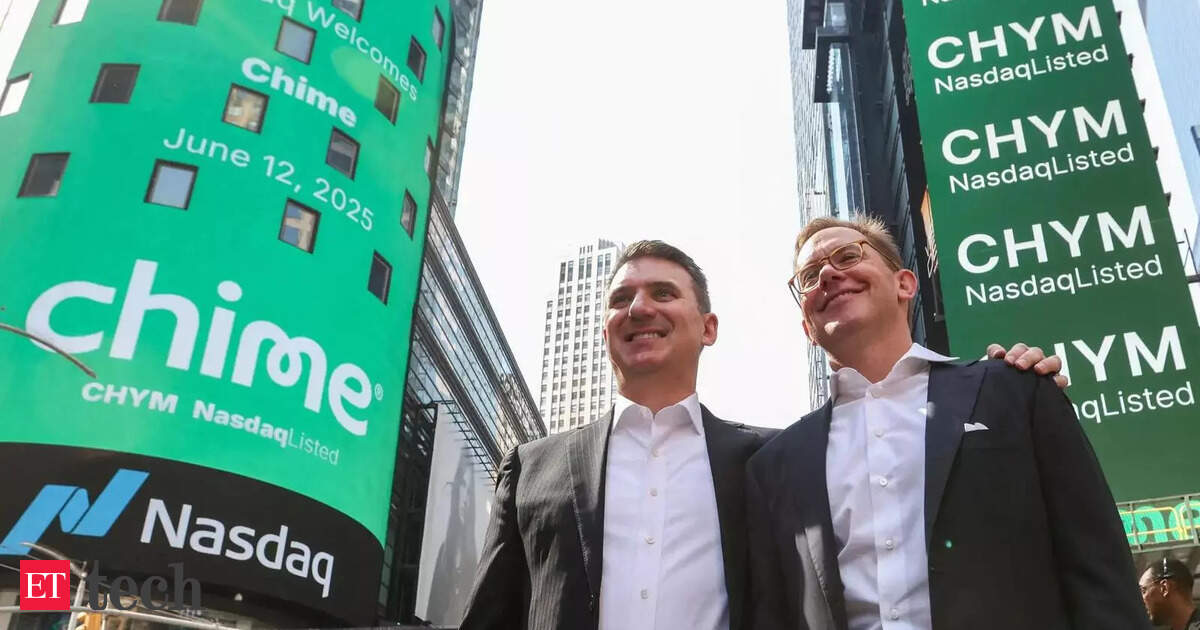The digital banking startup set a price of $27 for its shares at open, slightly above the earlier announced range of $24 to $26. They rose as much as 66% to $43, before closing at $37.11 apiece.
For founders Ryan King and Chris Britt, the successful listing was the culmination of a long and difficult journey, one that saw the company almost go under in 2016, when its runway almost ran out.
Business model
Founded in 2012 by Britt and King, Chime provides online banking products in partnership with US national banks and money management services.
Chime claims it earns primarily from interchange fees—charges merchants pay to process card payments—instead of levying overdraft fees, monthly service fees, or minimum balance fees. The tech-backed business model allows it to offer banking services at affordable costs, it said.


The company handled transactions worth $121 billion in the year ended March 31, 2025, with a customer base of 8.6 million.DST Global, Crosslink Capital, Len Blavatnik’s Access Industries, General Atlantic, Menlo Ventures, Cathay Innovation and Iconiq are invested in the fintech firm.
This is a far cry from a decade ago, when venture capitalists summarily rejected the company’s business model, seeing no future in it. According to news site TechCrunch, they got a lifeline from Lauren Kolodny, then a partner at Aspect Ventures, who gave them a $9 million extension. The grateful founders invited Kolodny, now a co-founder of Acrew Capital, to the podium to ring the opening bell at the Nasdaq.
Financial performance
Chime has been consistent with its financials over recent quarters, indicating it is on the path of sustainable growth. In 2024, its total revenue increased by more than 30% to $1.67 billion. According to TechCrunch, the company’s losses contracted from $203 million in 2023 to $25 million in 2024. Chime reported a net profit of $12.9 million on revenue of $518.7 million for the three months ended March 2025, according to its latest filing.
Rejuvenating the IPO market
Chime’s debut has come as a shot in the arm for the American IPO market. The strong performance by the stock could encourage other fintech majors, including Klarna, Gemini, Medline, and Cerebras Systems, to hasten their listing efforts.

